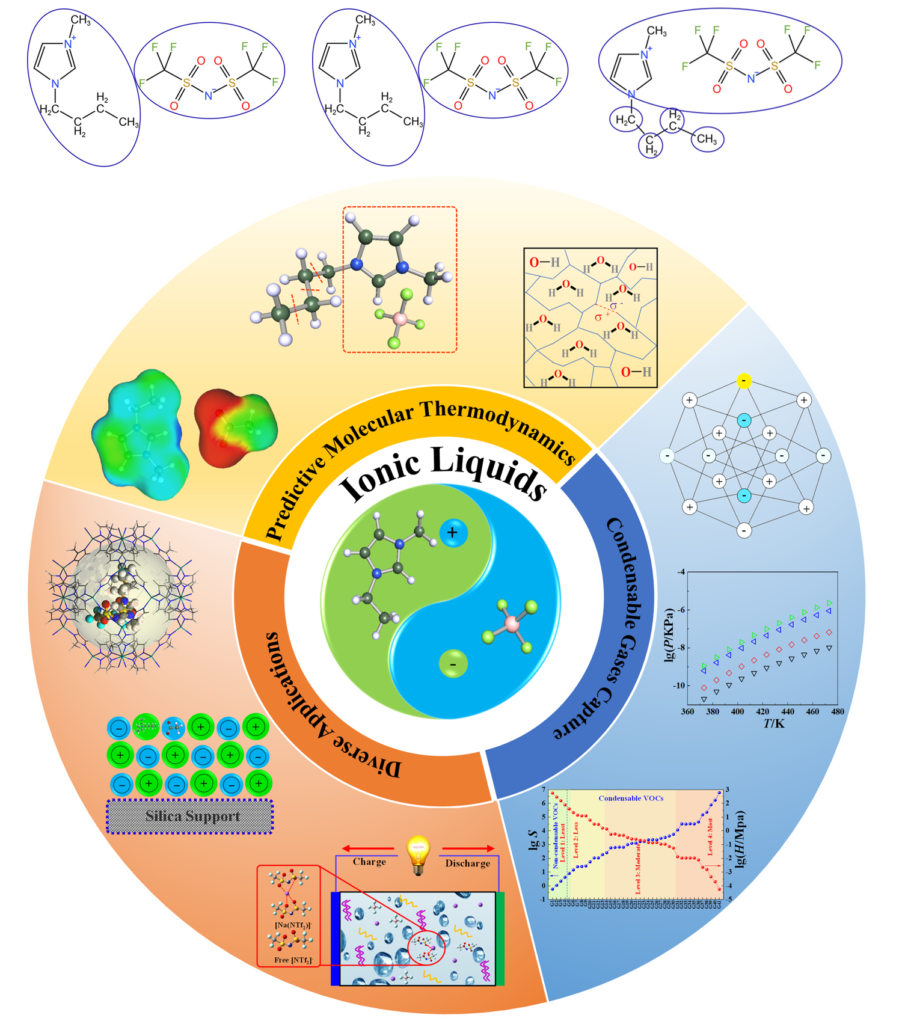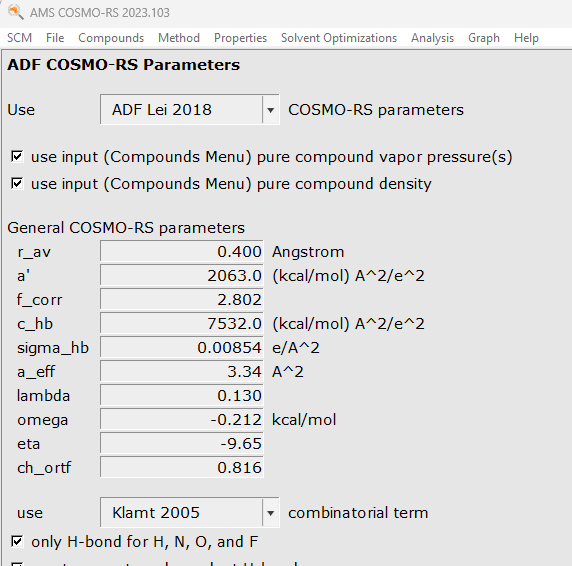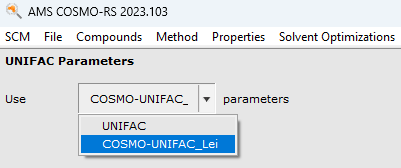Capturing Condensable Gases with Ionic Liquids
Condensable gases are the sum of condensable and volatile steam or organic compounds, including water vapor, which are discharged into the atmosphere in gaseous form at atmospheric pressure and room temperature. Condensable toxic and harmful gases emitted from petrochemical, chemical, packaging and printing, industrial coatings, and mineral mining activities seriously pollute the atmospheric environment and endanger human health. Meanwhile, these gases are necessary chemical raw materials; therefore, developing green and efficient capture technology is significant for efficiently utilizing condensed gas resources. To overcome the problems of pollution and corrosion existing in traditional organic solvent and alkali absorption methods, ionic liquids (ILs), known as “liquid molecular sieves”, have emerged as versatile, green solvents to replace traditional absorbents thanks to their excellent separation and regeneration performance.
A recent paper reviews the research progress of ILs in separating condensate gas. As the basis of chemical engineering, this review first provides a detailed discussion of the origin of predictive molecular thermodynamics and its broad application in theory and industry. The latest research results are reviewed, discussing ILs in the capture of several important typical condensable gases, including water vapor, aromatic VOCs (i.e., BTEX), chlorinated VOC, fluorinated refrigerant gas, low-carbon alcohols, ketones, ethers, ester vapors, etc. Using pure IL, mixed ILs, and IL + organic solvent mixtures as absorbents. Related reports of porous materials loaded with an IL as adsorbent are also reviewed. Finally, future development and research directions in this exciting field are remarked.

In the Chemical Reviews paper from the group of Professor Zhigang Lei from Shihezi University and Beijing University of Chemical Technology, the application of predictive molecular thermodynamic models in the field of condensable gases capture with ionic liquids is discussed. The COSMO-RS (ADF-lei 2018 parametrization) and COSMO-UNIFAC models developed by Professor Lei’s team have been embedded in the Amsterdam Modeling Suite, and have been widely used in the field of gas separation containing ionic liquid systems. The parameters for the COSMO-RS ADF-Lei 2018 parametrization or COSMO-UNIFAC-Lei parametrization can be easily selected from the graphical user interface (Method->Parameters):


While predictive molecular thermodynamics has been more firmly established in chemical engineering, also with applications to ionic liquids, there is scope for improvement through future development and research directions: (i) Although the predictive molecular thermodynamic model is suitable for solvent-polymer systems, to the best of our knowledge, systems containing poly (ILs) have not been included so far; (ii) It is noteworthy that ILs can be used as a battery electrolyte, but the interaction between IL and other compounds under electric field conditions is still unclear at the molecular level. Predictive molecular thermodynamics may provide theoretical insights into the details of liquid structures. (iii) Predictive molecular thermodynamics has not been extended to isotope distillation separation encountered in the nuclear industry (i.e., H2O−D2O−T2O separation); (iv) Predictive molecular thermodynamics has not been extensively used yet to aid the removal of metal ions encountered in the preparation of high-purity wet electronic chemicals (e.g., at least 20 metal ions need to be removed in the production process of electronic grade NMP); (v) Predictive molecular thermodynamics benefits from closely combining experiment, calculation, and theoretical analysis. In other words, they provide theoretical and modeling support for the experiment, and the experiment, in turn, verifies their applicability. Therefore, experimental work is still necessary, but predictions can help reduce time and wasteful resources screening for the right (ionic) liquids.
Guoxuan Li; Kai Chen; Zhigang Lei; Zhong Wei. Condensable Gases Capture with Ionic Liquids. Chem. Rev. 123, 0258–10301 (2023)
Key conceptsCOSMO-RS oil & gas